Hello, fellow travellers! Are you planning an epic road trip around Australia with the family? Buckle up, because choosing the best car for a long road trip is one of the most crucial decisions you’ll make. As a family that spent a year traversing this beautiful country with a toddler in tow, we’ve learned something about what works and what doesn’t. Whether you’re considering a campervan, motorhome, caravan, or even a trusty station wagon, this guide will help you navigate the options and find the perfect fit for your journey.
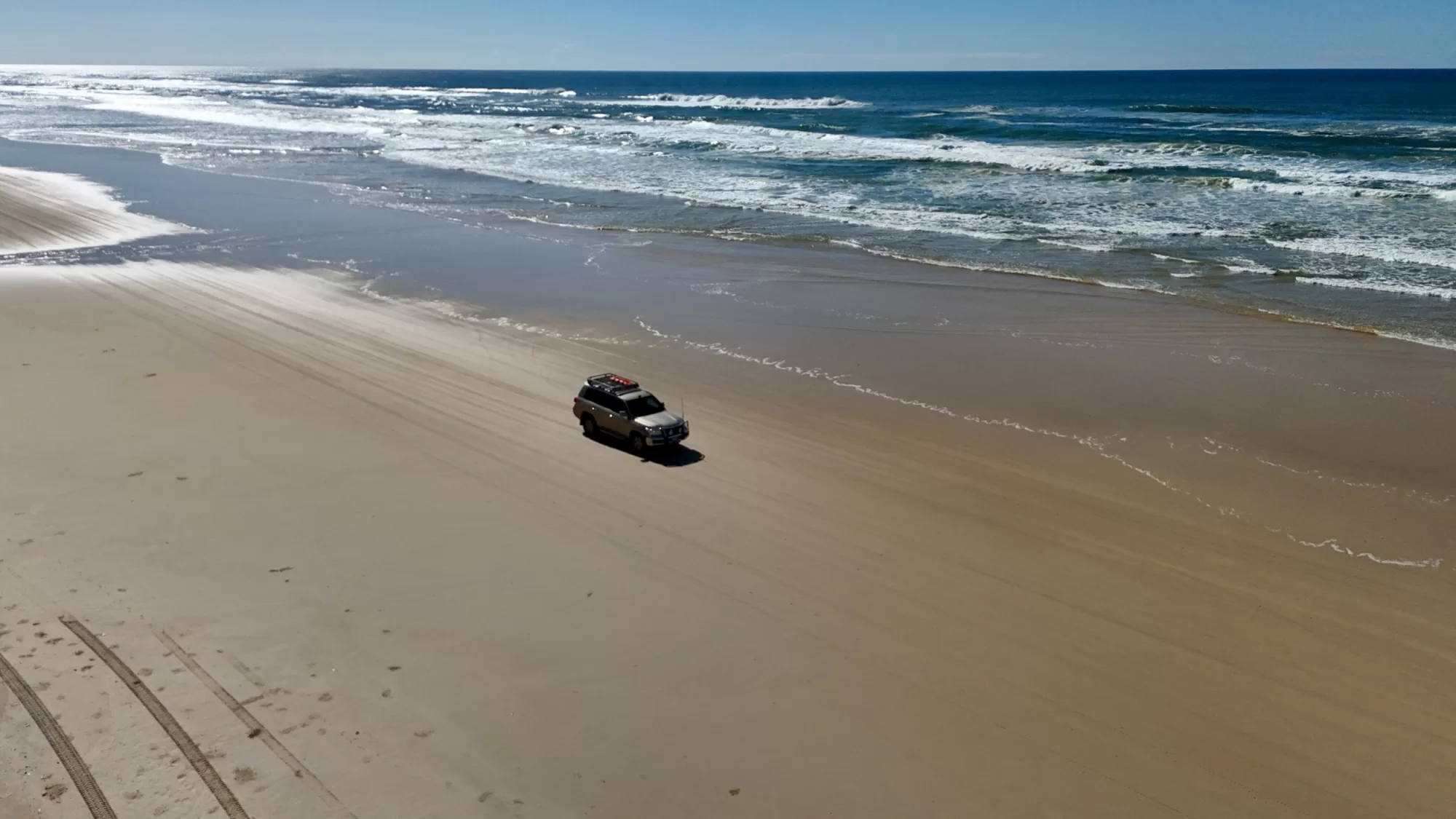
Renting a vehicle
When to Rent
Renting is ideal for short trips or if you’re flying into Australia and don’t want the hassle of purchasing a vehicle. At the same time, it saves you a lot of time and energy spent searching, inspecting, and selling a vehicle as well. It’s also a great way to test different types of vehicles before making a long-term commitment.
Where to Rent
Major cities like Sydney, Melbourne, Brisbane, and Perth offer a plethora of rental companies, including international giants like Hertz, Avis, and Budget, as well as local favorites like Apollo Camper and Britz/Mighty. Each of these rental agencies provides a range of vehicles tailored to different needs and budgets.
Websites and Apps
Use Rentalcars.com, Kayak, or direct company sites like Hertz, Avis, and Budget. For campervans and motorhomes, check out Campervan Finder or direct sites of the popular rental brands: Apollo Camper, Britz, Mighty, Camplify, Jucy Rentals, Maui, Cruisin, Travellers Autobarn, Camperman, Hippie Camper, SpaceShip, Wicked Campers – there is an option for every budget and every type of travel with vehicles of all sizes and classes.
Local Companies
Often, they have competitive rates and tailored options for campers and motorhomes. These companies frequently offer deals and discounts, especially during off-peak seasons.
Types of Rental Vehicles
Cars
Ideal for quick trips or city exploration. Compact, economical, and easy to park, but not suitable for long-term road trips with a family. Prices generally range from $40 to $70 per day.
SUVs
Offer more space and are great for off-road adventures. SUVs can be a bit pricier, typically between $70 to $120 per day, but they provide the necessary power and durability for rugged terrain.
Campervans
Combine transport and accommodation. Basic models start around $90 per day, while more luxurious versions can go up to $200 per day. Campervans often come with cooking facilities, beds, and sometimes even a small bathroom.
Motorhomes
Perfect for families wanting comfort and space. Expect to pay between $150 and $300 per day, depending on the size and features. Motorhomes usually offer more extensive amenities like larger kitchens, full bathrooms, and multiple sleeping areas.
How to Rent
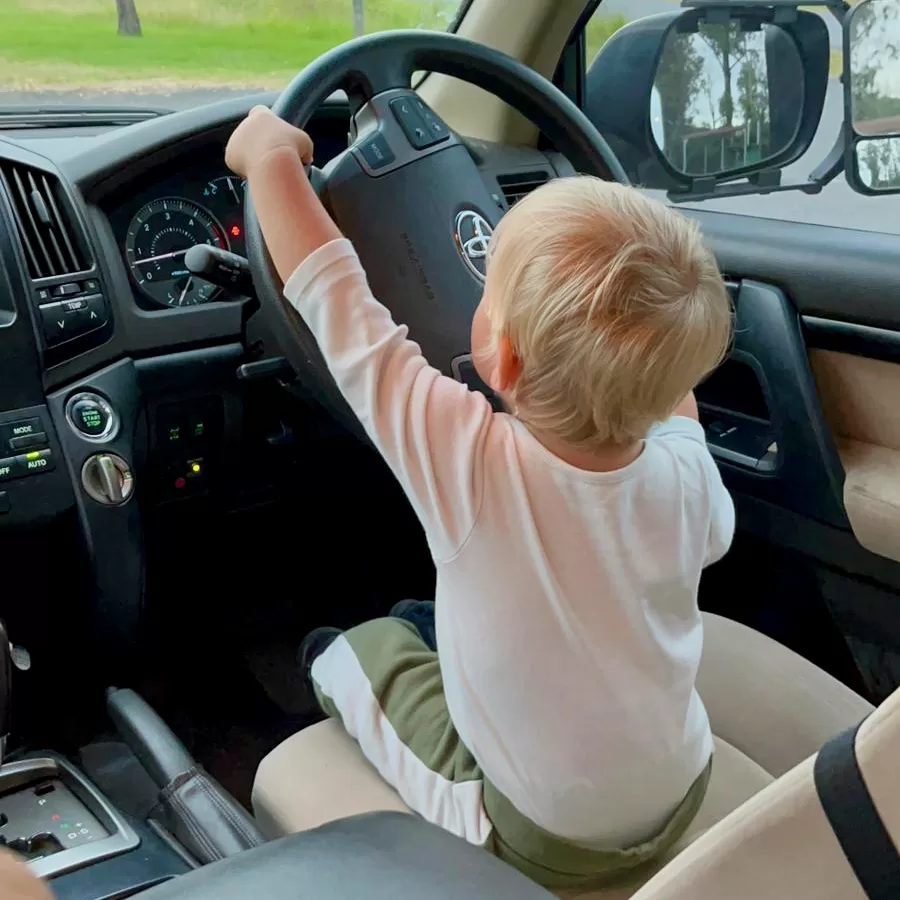
Booking a rental vehicle is straightforward. Use comparison websites like Rentalcars.com, Kayak, or even specific campervan rental sites like Campervan Finder. These platforms allow you to compare prices, read reviews, and book the best deals. Always check for discounts or special offers, and read the fine print regarding insurance, mileage limits, and fuel policies.
What to Consider
Size of the Vehicle
Ensure it’s big enough for your family and luggage. If you’re traveling with a toddler, consider the space needed for a car seat and other baby gear like a pram, booster seat, porta cot, etc. Larger vehicles offer more comfort but can be harder to maneuver.
Fuel Efficiency
A fuel-efficient vehicle will save you money on long trips, especially in Australia’s vast and remote areas where petrol stations might be few and far between often with higher fuel prices too.
Rental Duration
Longer rentals often come with discounted rates. Renting for a month or more can sometimes qualify you for significant savings.
Insurance
Make sure you have comprehensive coverage. Rental companies usually offer several insurance options, so choose one that provides adequate protection for your peace of mind.
Fuel Policy
Check if the rental company offers full-to-full or full-to-empty fuel policies. Full-to-full is usually more cost-effective as you only pay for the fuel you use. Full-to-empty policies may seem convenient, but you often end up paying inflated fuel prices.
Mileage Limits
Be aware of any mileage restrictions. Some rental agreements include unlimited mileage, while others charge per kilometer after a certain threshold. If you plan to cover long distances, opt for unlimited mileage to avoid unexpected fees.
Child Seats and Accessories
If you’re traveling with a toddler, ensure the rental company provides appropriate child seats or booster seats. These may come at an additional cost, so factor this into your budget.
Additional Drivers
Check if the rental agreement allows additional drivers and whether there are any extra fees associated with adding them. Having multiple drivers can be beneficial for long journeys, especially if you want to share your driving responsibilities.
Different pick-up and drop off locations
Some companies offer the option of picking up the vehicle at one spot and returning it in another one. This option saves you time driving all the way back, so you can enjoy and see more.
Top Tip: Book a rental vehicle in advance especially during the holiday season to get yourself the best deal, avoiding unexpected “booked out”, “higher price” or “limited options” surprises.
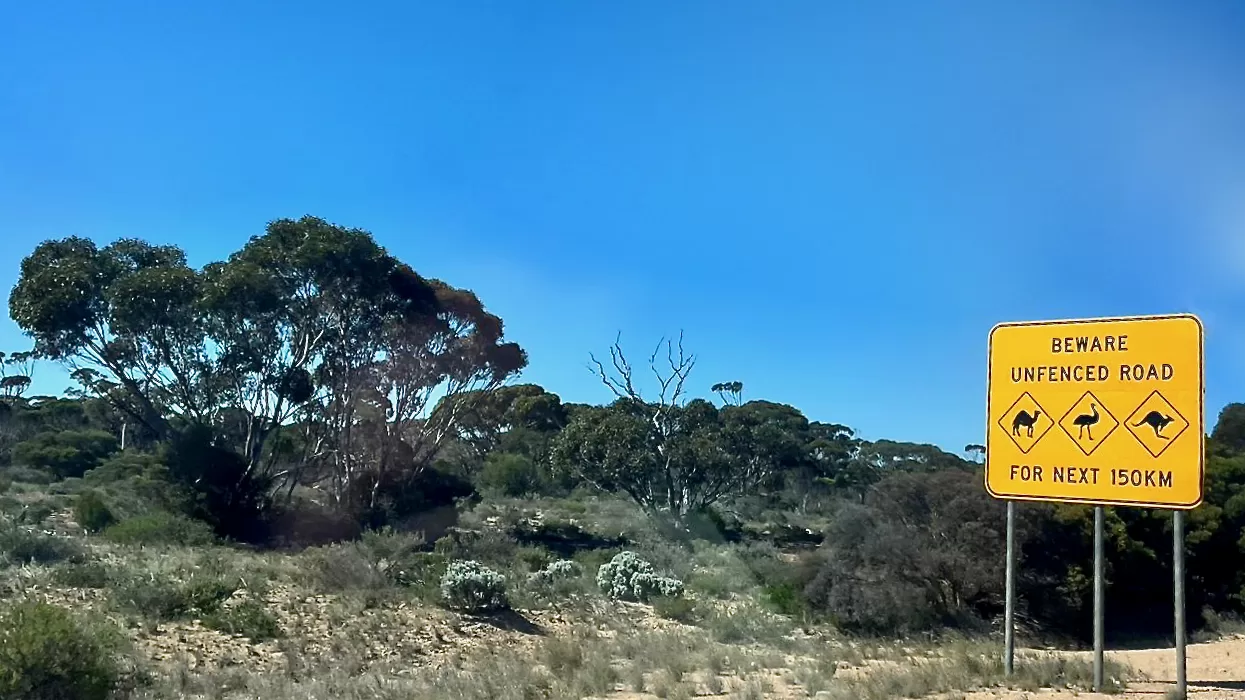
Purchasing a vehicle
For longer trips, purchasing might be more economical. Price ranges for new motorhomes, caravans, and vehicles vary widely, with prices ranging from $10K to $300K. We opted for a used car and caravan and found both online. Check out dedicated Facebook groups (according to your location), Marketplace, Gumtree, or local dealerships in cities like Perth’s Victoria Park.
New vs. Used
Deciding whether to buy a new or used vehicle depends on your budget and how long you plan to travel.
New Vehicles
Offer reliability and come with warranties but are more expensive. They are ideal if you plan to use the vehicle long-term or resell it afterward. New cars can range from $30,000 to $80,000 depending on the type and model.
Used Vehicles
More budget-friendly and perfect for shorter trips. However, ensure you get a thorough inspection to avoid hidden issues. Prices for used vehicles can range from $5,000 to $50,000 depending on age, condition, and type.
Where to Find Vehicles
Dealerships
Great for new cars or certified pre-owned vehicles with warranties. Dealerships often provide financing options and sometimes include additional perks like extended warranties or service plans.
Private Sellers
Platforms like Gumtree, Carsales, and Facebook Marketplace offer a wide range of used vehicles. Always negotiate and arrange a pre-purchase inspection. These platforms allow you to communicate directly with the seller and often find better deals than at a dealership.
Rental Car Auctions
Rental companies often sell off their older vehicles at discounted rates. These cars are typically well-maintained and may come with service histories. Auctions can be a great option for budget-conscious buyers, it can be a great way to snag a bargain, but competition can be fierce.
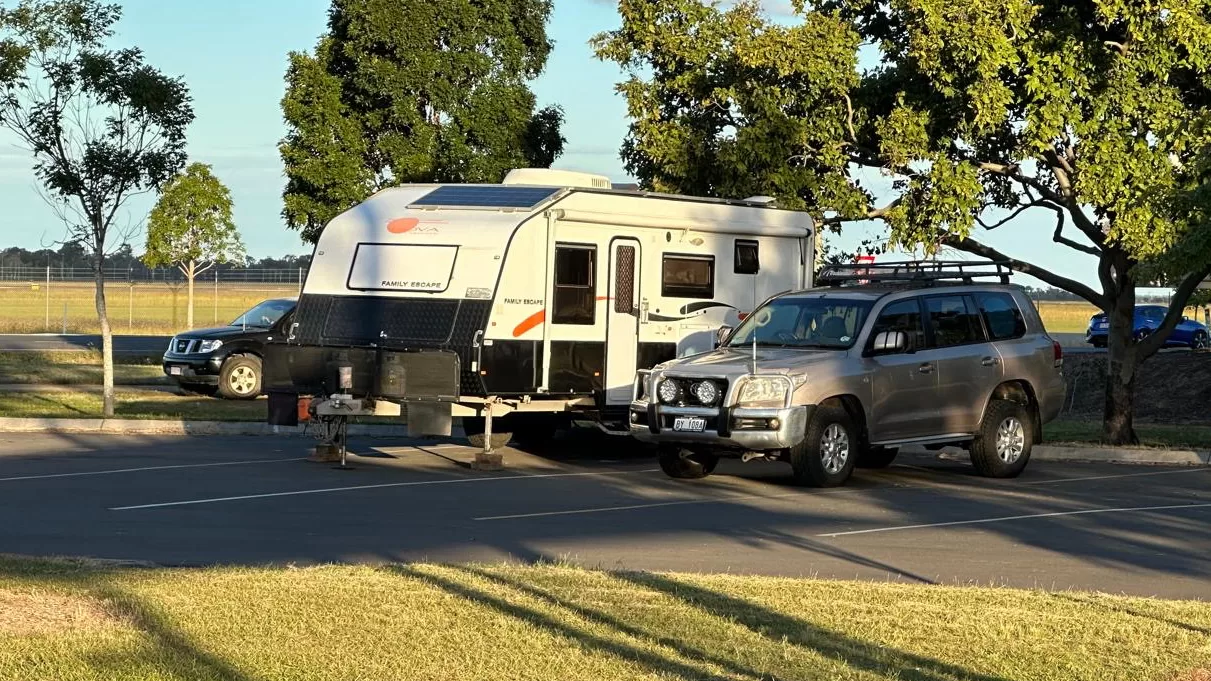
Making the Decision
Vehicle Types
Car
Great for solo travelers or couples. Economical and easy to drive but limited in space, it is often used with a rooftop tent.
Station Wagon
Offers more space and is suitable for small families. Affordable and versatile.
SUV
Ideal for off-road adventures and families needing extra space. Provides a higher driving position and generally better safety features.
Campervan
Combines transport and accommodation. Best for small families who want a budget-friendly, all-in-one solution. Campervans offer flexibility and ease of use, especially for first-time road trippers.
Motorhome
Luxurious and spacious, perfect for families wanting comfort and convenience. Motorhomes often have slide-outs to increase living space and separate sleeping areas.
Car & Caravan
Offers flexibility and more living space. Suitable for longer trips but requires towing skills and a compatible vehicle (the most used are Toyota Landcruiser, Toyota Hilux, and Ford Ranger). Caravans can range from compact pop-tops to large, fully-equipped mobile homes.
Bus
For the ultimate in space and comfort. Ideal for large families or groups but can be cumbersome to drive and park. Buses provide unparalleled space and often include multiple bedrooms and large living areas.
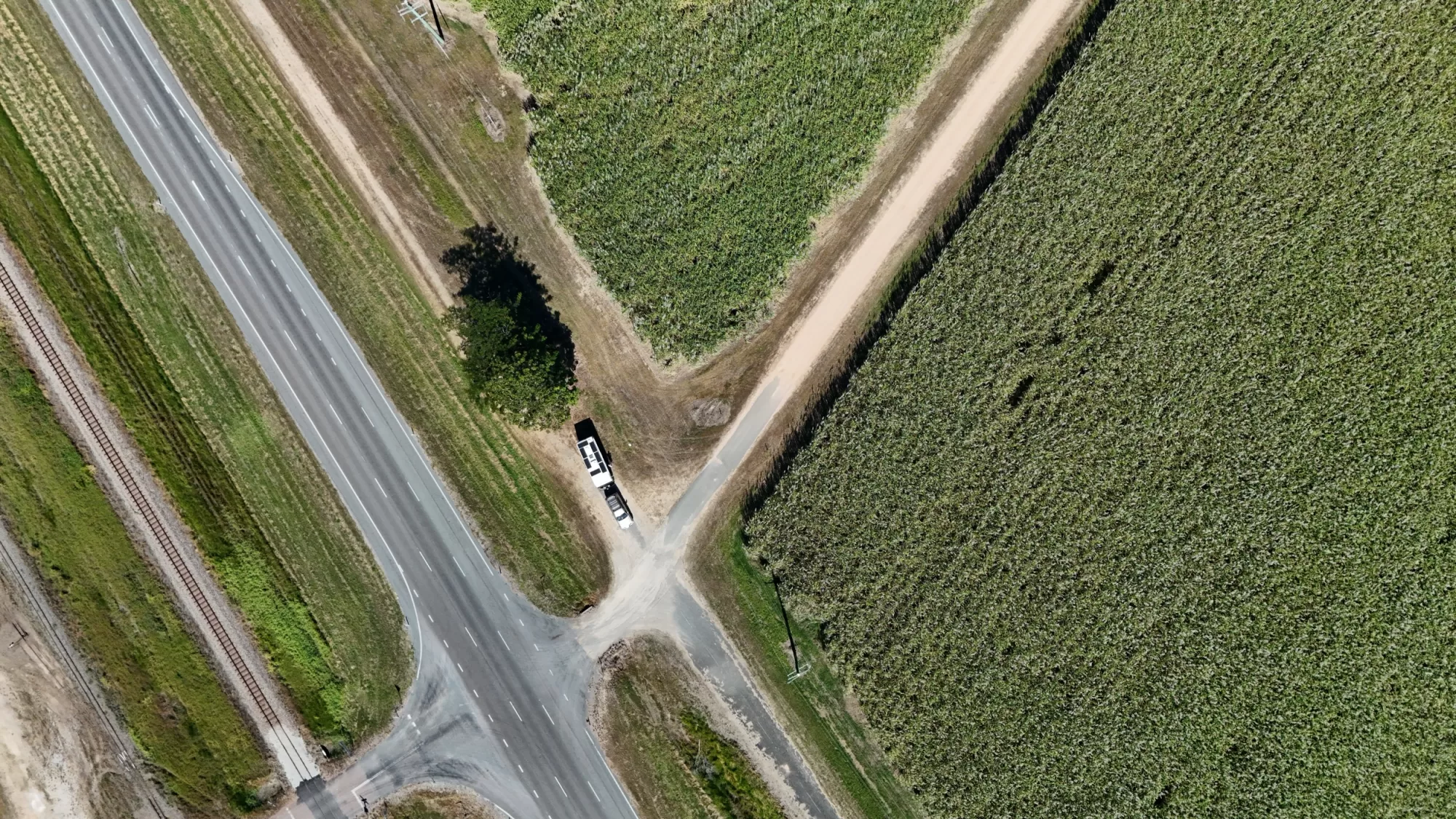
Things to Consider
Family Size
Ensure the vehicle has enough seats and sleeping arrangements for everyone. If traveling with a toddler, consider the convenience of built-in sleeping areas and kitchen facilities.
Budget
Determine your budget for purchasing the vehicle, including additional costs like insurance, registration, and any necessary modifications.
Trip Length
For extended trips, comfort becomes more important. Larger vehicles like motorhomes and caravans offer more space and amenities.
Terrain
Plan for the types of roads you’ll be driving on. Off-road requires a 4WD or robust SUV. Researching your route in advance can help you avoid unexpected challenges. Choose a vehicle that can handle various terrains, especially if you plan on venturing off the beaten path.
Comfort vs. Convenience
Motorhomes and caravans offer more comfort but come with the hassle of setting up and breaking down camp. Consider how much time you want to spend driving versus setting up camp.
Mechanical Condition
Regardless of whether you’re buying new or used, always have a qualified mechanic inspect the vehicle before purchase. This can uncover any underlying issues and save you from costly repairs down the road.
Vehicle History
Obtain a comprehensive vehicle history report for used cars to check for accidents, odometer discrepancies, and service records. This information can give you insight into the vehicle’s past and help you make an informed decision.
Negotiation
Don’t be afraid to negotiate the price, especially when buying from private sellers or at auctions. Research the market value of similar vehicles and use this information to leverage a better deal.
Ownership Costs
Consider additional costs beyond the purchase price, such as insurance, registration, and maintenance. These ongoing expenses can significantly impact your overall budget, so factor them in when making your decision.
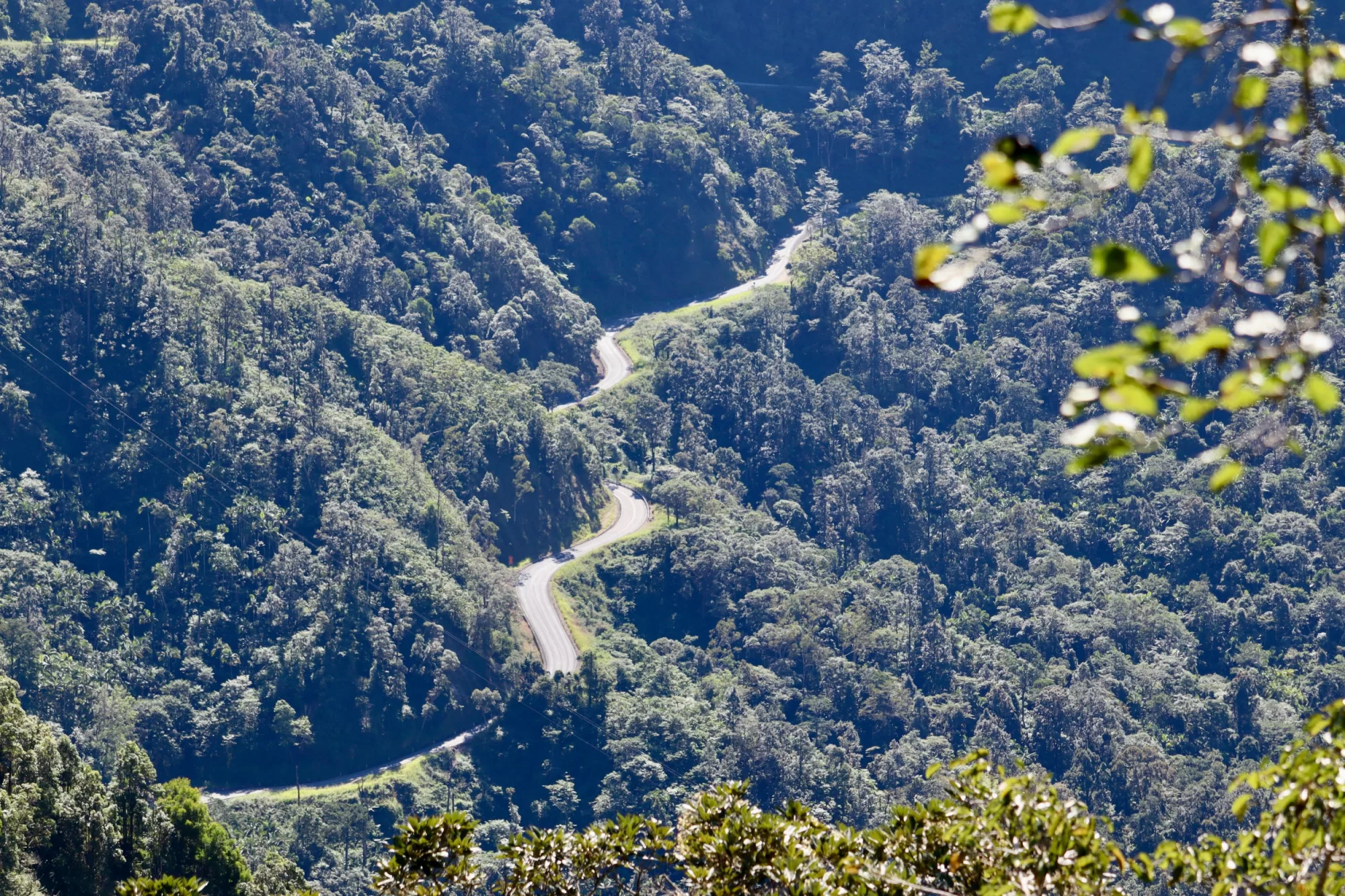
Prices and Comparisons
Car vs. Campervan vs. Motorhome vs. Caravan
Car
$10,000 – $30,000 new. $5,000 – $15,000 used.
Station Wagon
$15,000 – $40,000 new. $7,000 – $20,000 used.
SUV
$25,000 – $50,000 new. $10,000 – $30,000 used.
Campervan
$30,000 – $80,000 new. $20,000 – $50,000 used.
Motorhome
$80,000 – $150,000 new. $50,000 – $100,000 used.
Car & Caravan
Car $25,000 – $50,000 & Caravan $30,000 – $80,000 new. Used combos can range from $30,000 – $90,000 total.
Pros and Cons of Each Type
Car
Pros: Economical, easy to drive, and park.
Cons: Limited space, no built-in accommodation.
Station Wagon
Pros: More space, versatile.
Cons: Still limited for long-term living.
SUV
Pros: Off-road capable, spacious.
Cons: Higher fuel consumption.
Campervan
Pros: All-in-one, budget-friendly, can be “disguised”.
Cons: Less space than a motorhome.
Motorhome
Pros: Luxurious, spacious.
Cons: Expensive, tall, cumbersome to drive.
Car & Caravan
Pros: Flexibility, comfort, more living space.
Cons: Requires towing, more setup time, and limited parking options.
Bus
Pros: Ultimate space and comfort.
Cons: Difficult to drive, expensive.
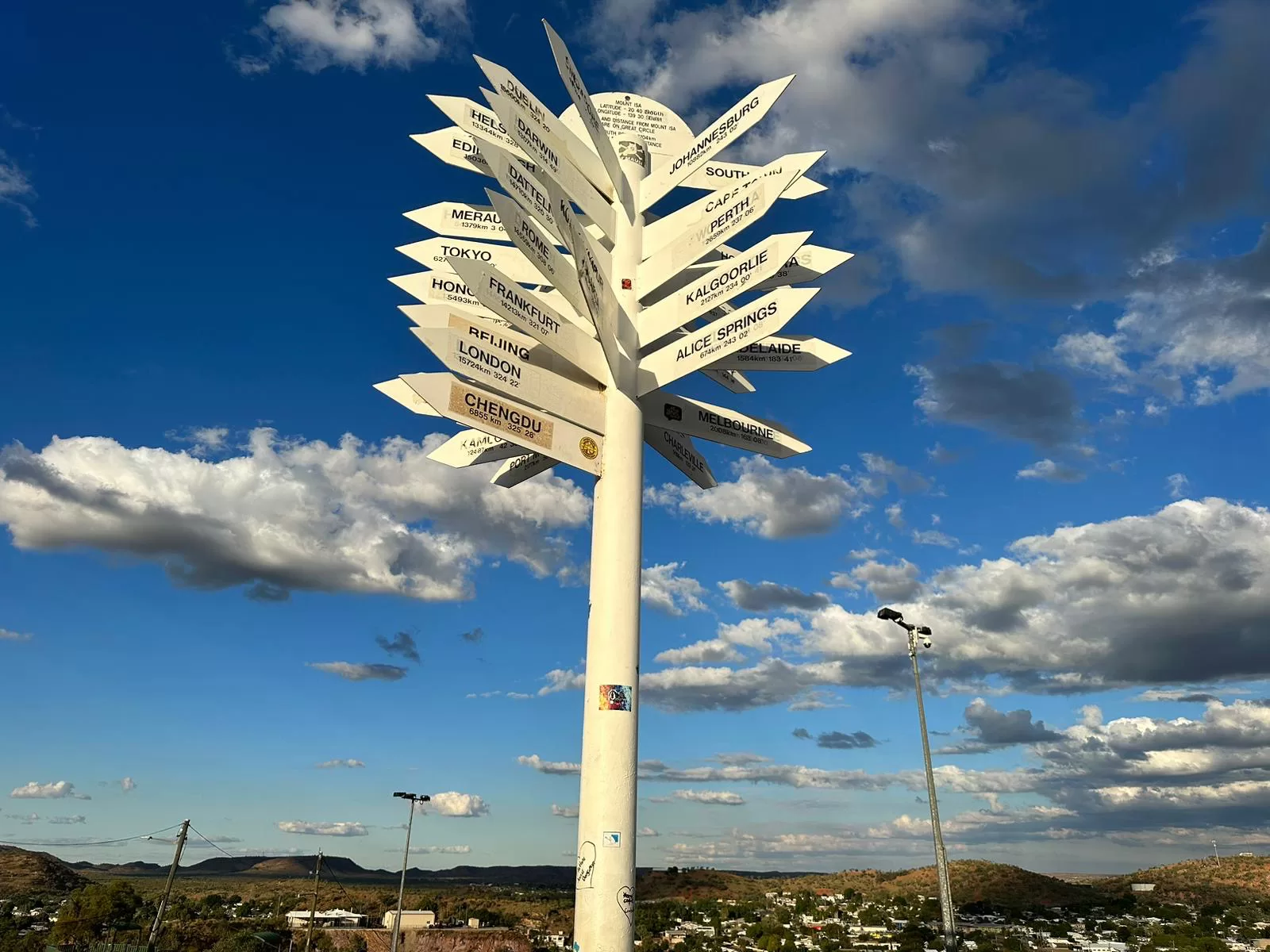
Age and Situation Suitability
Young Families with Toddlers
Campervan or motorhome for convenience and comfort.
Couples or Solo Travelers
Car or campervan for flexibility.
Large Families
Car & caravan or motorhome for space.
Adventurous Types
SUV or campervan for off-road capability.
On Budget Travelers
Car or station wagon with a rooftop tent.
Cost Breakdown
Compare the costs associated with different types of vehicles, including:
Purchase Price
New and used vehicles vary significantly in price, so consider your budget and long-term plans.
Insurance
Factor in the cost of insurance premiums for comprehensive coverage.
Maintenance
Budget for regular maintenance and repairs, especially for older vehicles.
Additional Equipment
Depending on your travel plans, you may need to invest in additional equipment like towing accessories, solar panels, or camping gear.
On-the-Road Costs
Consider the ongoing expenses of operating your vehicle, including:
Fuel Consumption
Cars
Generally, the most fuel-efficient option, especially smaller, compact models. Expect an average fuel consumption of around 8-10 liters per 100 kilometers.
Campervans and Motorhomes
Larger vehicles with heavier fuel consumption due to their size and weight. Motorhomes, in particular, can be quite thirsty, averaging around 15-20 liters per 100 kilometers.
Caravans
Towing a caravan can increase fuel consumption by 30-50%, depending on the weight and aerodynamics of the caravan, our average is about 19 liters per 100 kilometers.
Fuel
Calculate fuel costs based on your planned route and the vehicle’s fuel efficiency.
Tolls
Cars
Tolls vary depending on the state and road network. Most toll roads offer electronic payment options, so ensure your vehicle is equipped with a compatible toll tag or transponder to avoid fines, some states on the other hand have no tolls like WA for instance.
Campervans and Motorhomes
Some toll roads have height or weight restrictions, so be mindful of any restrictions that may apply to your vehicle. Plan your route in advance to avoid unexpected detours or additional fees
Tolls
Budget for toll roads, especially if you’ll be traveling through major cities or urban areas.
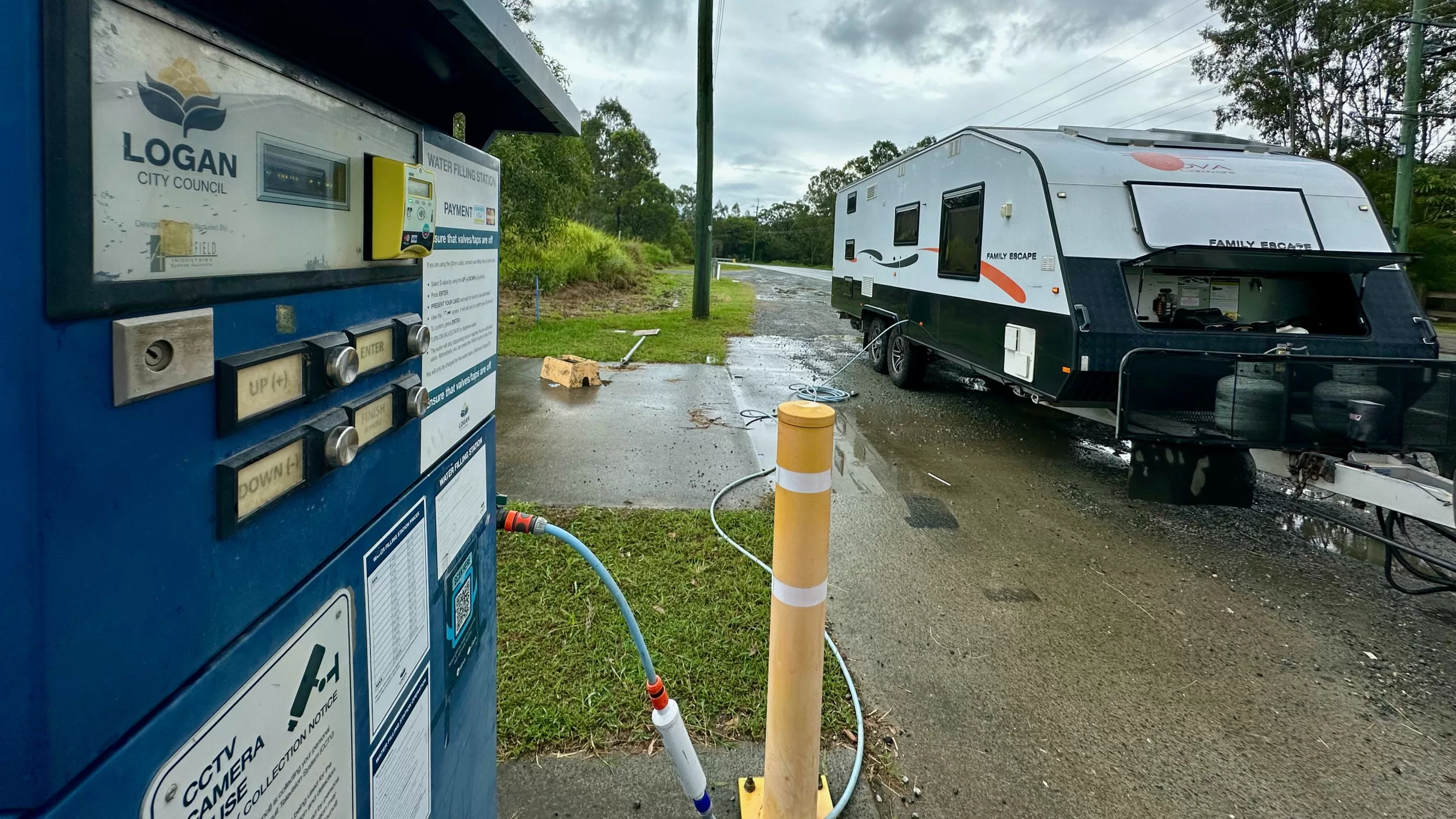
Accommodation Costs
Caravans and Motorhomes
Accommodation costs can vary significantly depending on where you stay. Caravan parks and campgrounds typically charge between $30 to $60 per night for a powered site, with additional fees for extra amenities like showers or laundry facilities. Free campsites are budget-friendly but may lack amenities.
Hotels and Motels
If you prefer the comfort of a hotel room, expect to pay between $100 to $200 per night for a standard room, depending on the location and quality of the accommodation.
Airbnb and Other Short-Term Rentals
Airbnb offers a range of accommodation options, from budget-friendly rooms to luxury villas. Prices vary depending on the property and location but can be a cost-effective alternative to hotels, especially for longer stays.
Campsites and Accommodation
Allocate funds for campsites, caravan parks, or accommodation if you prefer not to free camp.
Maintenance and Repairs
Cars
Routine maintenance costs for cars are relatively low compared to larger vehicles like campervans or motorhomes. However, unexpected repairs can still occur, so it’s essential to budget for these expenses.
Campervans and Motorhomes
Larger vehicles typically require more frequent maintenance and repairs due to their complex systems and heavy usage. Budgeting for regular servicing and unexpected breakdowns is crucial to avoid disruptions to your journey.
Caravans
While caravans don’t have engines, they still require regular maintenance to ensure they remain roadworthy. This includes servicing the brakes, wheel bearings, and chassis, as well as inspecting the electrical and plumbing systems, also checking all the screws and fuses after driving on a corrugated road.
Ferry Crossings
If your journey includes ferry crossings, research prices and book in advance to save money. In general, the longer the vehicle, the higher the price, two vehicles, are nearly double the price.
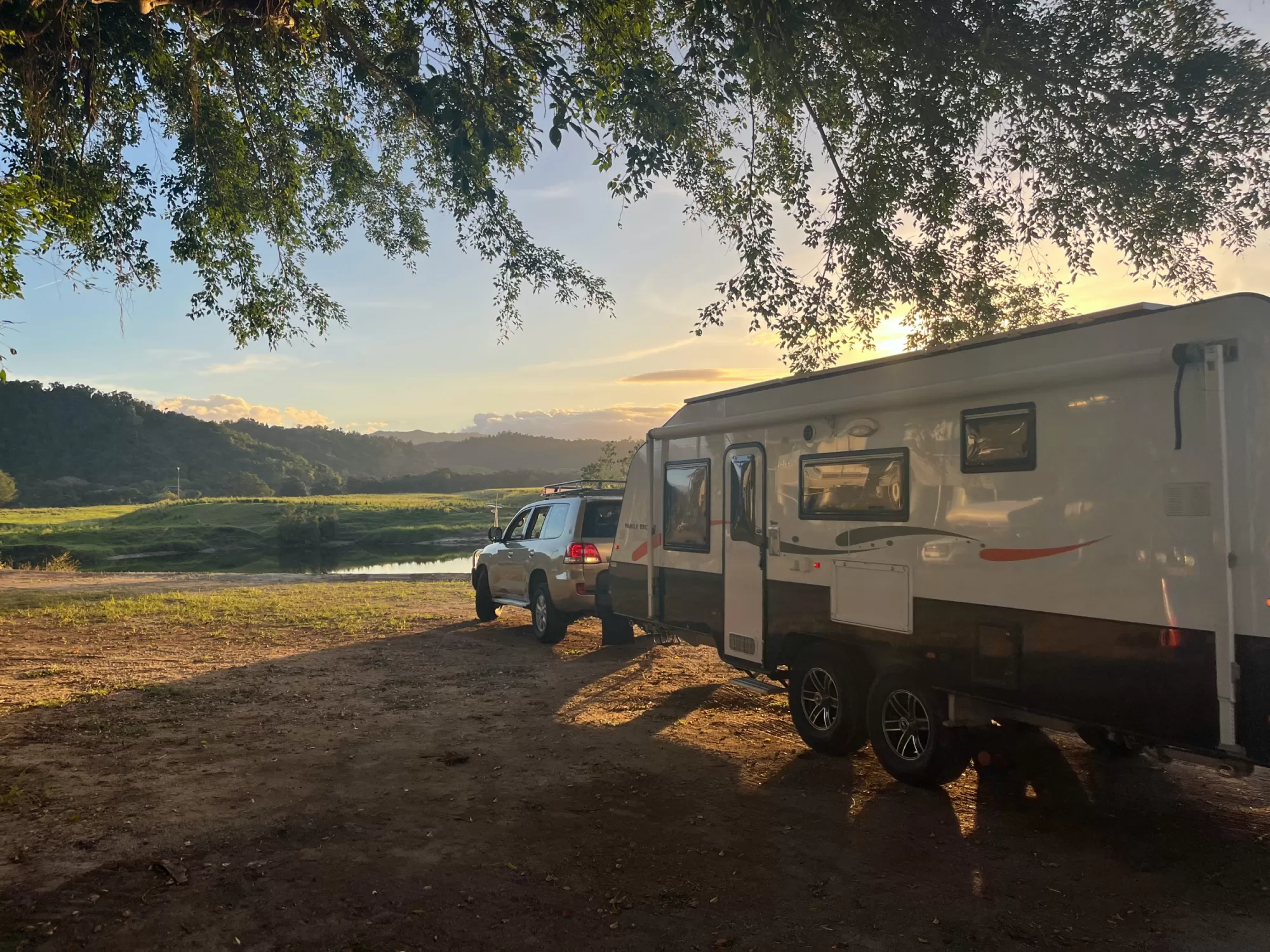
Extra option: Customizing Your Vehicle
For those with a bit more time and a flexible budget, there’s an exciting option beyond renting or purchasing: building or customizing your own caravan or camper. This route allows you to tailor the vehicle to your specific needs and preferences, whether it’s adding extra storage for your toddler’s gear, installing a solar power system for off-grid adventures, or creating a cozy nook for family bonding. If you’re the DIY type, this can be a rewarding project and a unique challenge. Alternatively, you can work with specialized companies that create custom vehicles.
However, this option is typically more feasible for those who aren’t limited by a tourist visa, as building or customizing a vehicle can be time-consuming. International travelers often have restricted timeframes due to visa limitations, making renting or purchasing a quicker and more practical option. But if you’re an Australian resident or have an extended stay planned, customizing your caravan could be the perfect way to ensure your home-on-wheels meets all your travel dreams.
Worth to consider: Driving Conditions in Australia
Since we have gone through this process we know that the driving conditions compared to your country can be very different Downunder. Driving conditions in Australia can vary greatly, from smooth highways to rugged outback tracks. Understanding the licensing requirements is crucial for a smooth journey. If you plan to drive a standard car or tow a caravan, a regular Australian driver’s license or an international driver’s permit (IDP) based on a European B license will suffice.
For those considering larger vehicles like a motorhome or bus, you might need a different class of license. In most states, vehicles over 4.5 tonnes GVM (Gross Vehicle Mass) require a Light Rigid (LR) license. For even larger vehicles, a Medium Rigid (MR) or Heavy Rigid (HR) license might be necessary. The process for obtaining these licenses includes passing specific driving tests and may take several weeks, so plan accordingly.
International visitors can use their home country’s license for up to three months, after which an IDP may be required. Always carry your IDP alongside your regular license. If you’re planning to tow a caravan and have a European B license, check the weight limits, as Australian regulations may differ. Ensuring you have the correct license will not only keep you legal but also ensure your safety and the safety of others on the road.
In our case, we brought out International licenses, as well as we did the Australian driver’s license in WA, and our European B license is sufficient for towing a 21ft caravan (overall GVM under 3,5 tonnes).
Conclusion
Choosing the best car for your long Australian road trip is a decision that requires careful consideration of your family’s needs, budget, and travel plans. Whether you opt for the convenience of a campervan, the luxury of a motorhome, or the flexibility of a car and caravan combo, there’s a vehicle out there to suit every adventurer. By weighing the pros and cons of each option and doing thorough research, you can embark on an unforgettable journey across the Land Down Under. Happy travels!
Take a look at our Australia Travel Guide page for all the inspiration and information you need to kickstart your travels and hit the road more frequently!


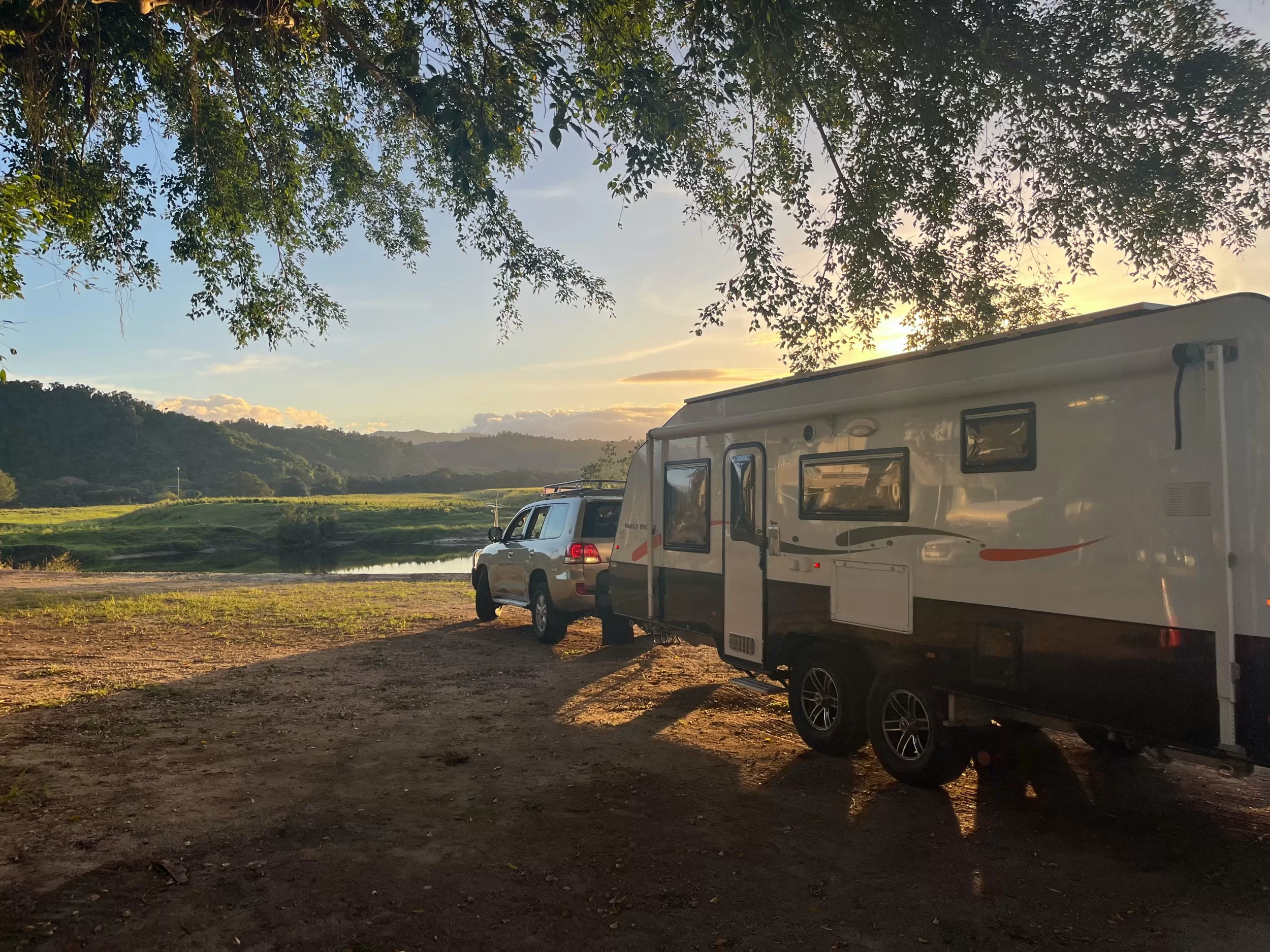
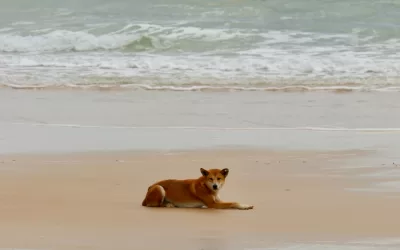
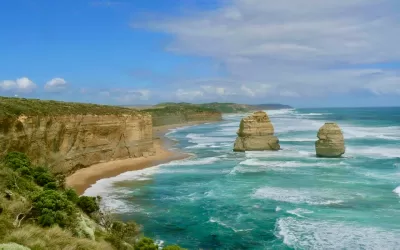

0 Comments